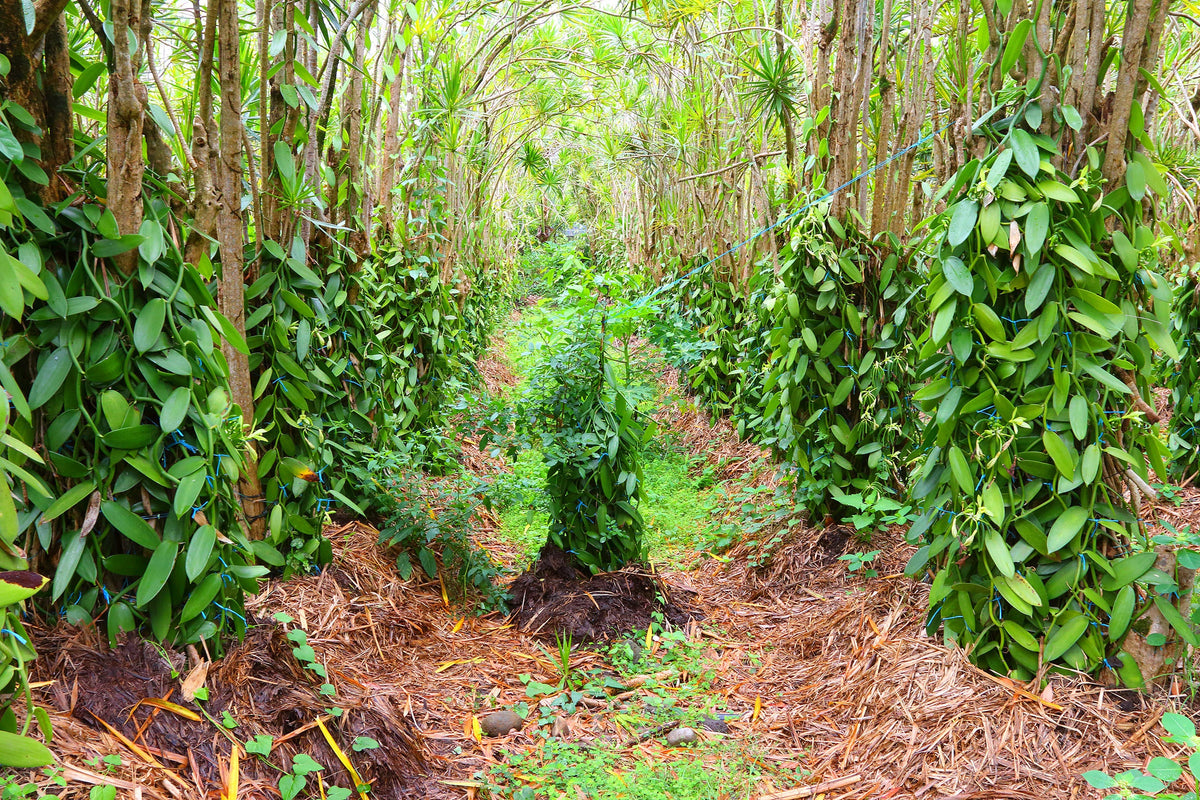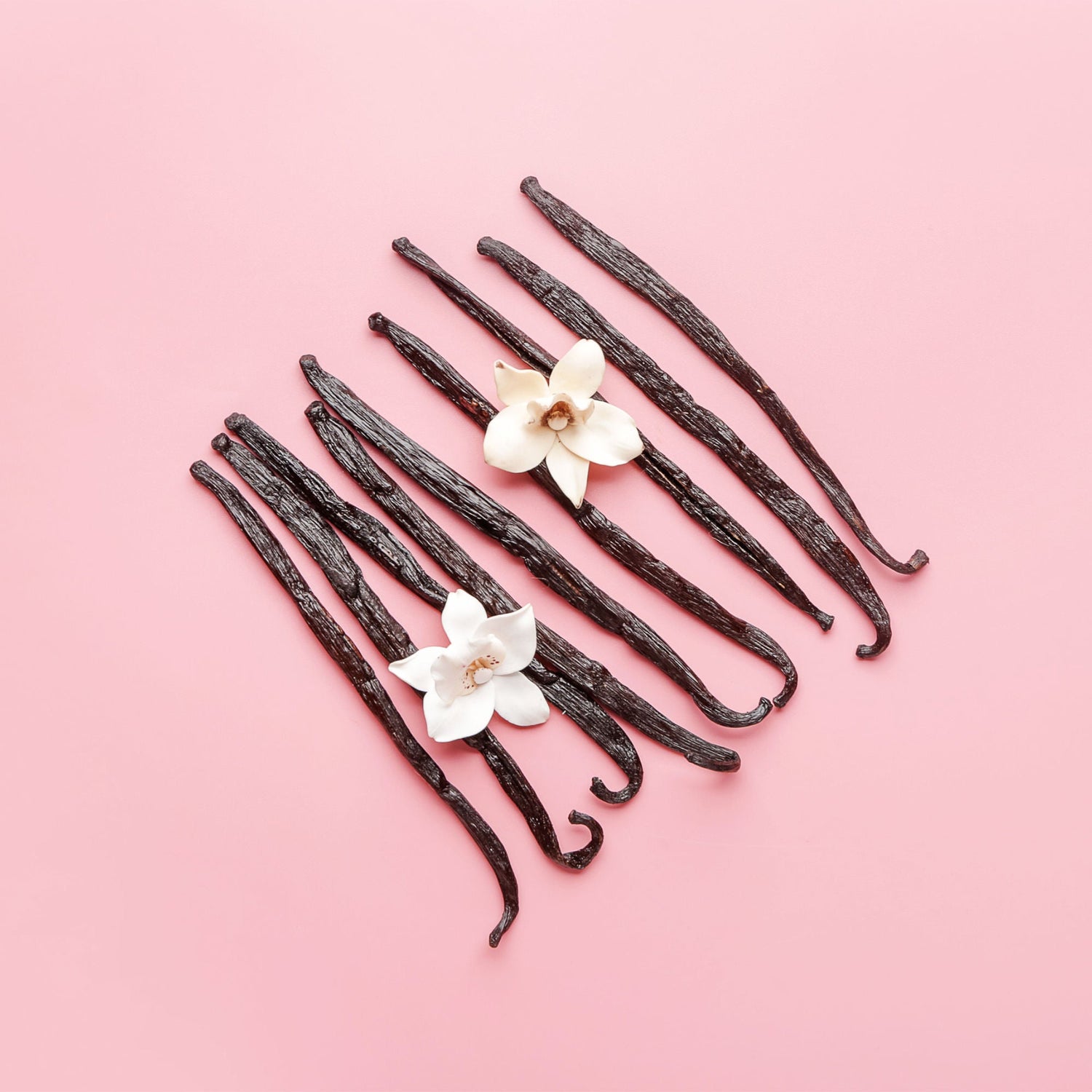
Organic Vanilla or Non-Organic Vanilla?
|
|
Time to read 4 min

Grand Cru Madagascar vanilla from the most prestigious plantations in Madagascar. Our...
|
|
Time to read 4 min
Madagascar is world-renowned for its natural treasures. The large island is brimming with natural and organic products such as vanilla, cloves, coffee, peppers, and many other spices. Today, we’ll focus on which quality of vanilla to choose, especially between non-organic and organic Madagascar vanilla. You might wonder: should you choose natural vanilla or certified organic vanilla? Faced with this choice, the dilemma is real—it’s not easy at all, and it makes you question how these two types of vanilla are truly different. Spend a few more minutes with us and you’ll see things more clearly!
Non-organic and organic vanilla from Madagascar share several similarities, including their geographic origin, cultivation process, varieties, harvesting methods, and flavor profiles.
You’re right, it seems these two types of vanilla are virtually identical. Despite a few minor—mainly economic—differences, both vanilla labels are natural.
Cultivation methods and certifications
Non-organic vanilla:
First of all, non-organic vanillas are produced using traditional farming methods. Farmers use age-old techniques to grow their vanilla.
Secondly, the producers don’t use chemicals or any type of fertilizer. It’s important to understand that vanilla is grown in tropical areas where it thrives in naturally favorable conditions.
Thirdly, what really sets it apart from organic vanilla farming is that there is no official commitment to follow the mandatory standards of organic farming. Due to financial constraints, farmers do not seek specific certifications.
Organic Vanilla:
Although organic vanilla also comes from natural farming, the difference lies in the fact that organic vanilla is grown according to organic farming standards. With organic vanilla from Madagascar, no chemicals are ever used. The cultivation methods may be less traditional and sometimes modernized, but non-organic products are never, ever used.
Internationally recognized certification bodies are setting up in Madagascar, including the renowned ECOCERT, which certifies products for export to many countries around the world such as Europe, the United Kingdom, the United States, Japan, India, among others. These certifying organizations establish rules and requirements to ensure that farmers operate in a strictly organic manner.
The equipment used and the cultivation processes all have to meet these strict conditions. So, organic farming is more complicated and, above all, more expensive. To give you an idea, certification costs can represent an entire year’s harvest income for farmers. Every step from planting to harvest requires extra care, which drives up costs even more to comply with the certifying body’s standards. As a result, organic vanilla producers are usually large vanilla farms.
Non-organic vanilla:
💡 Choosing a good non-organic vanilla bean:
So buying these vanilla beans mainly helps small farmers continue traditional, all-natural, chemical-free agriculture.
Certified Organic Vanilla from Madagascar
Organic vanilla has a reputation for being more environmentally friendly and healthier, which explains its growing appeal among consumers concerned about sustainability.
Organic vanilla is grown without any chemicals…This guarantees a purer, more natural product. In other words, the absence of chemicals is ensured.
Since organic vanilla is assessed and certified according to strict organic farming standards, consumers can be confident that they're buying vanilla produced through environmentally friendly and sustainable processes. Earning certification is therefore a mark of quality.
Organic vanilla production also ensures fair trade and a positive social impact. Knowing the vanilla was grown without chemicals makes people see the product as higher quality. This allows organic vanilla producers to sell their product at a fairer price, improving their living conditions more quickly. Organic farming also encourages better work practices that support local economic development.
Thank you for joining us on this wonderful journey and inspiring discoveries of natural and organic vanilla from Madagascar. Feel free to contact us and visit our online store “vanillia” for an unforgettable tasting experience. See you soon!